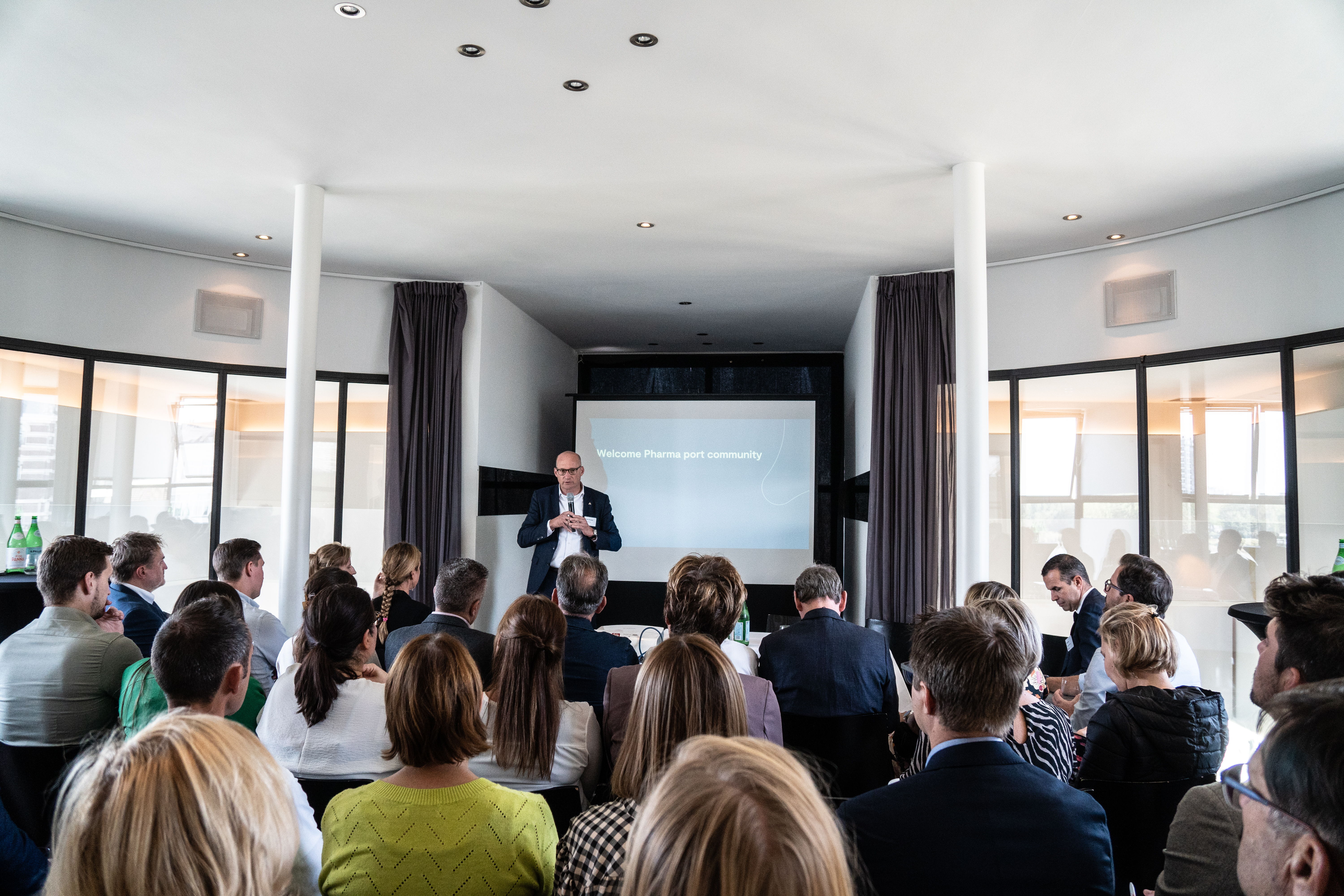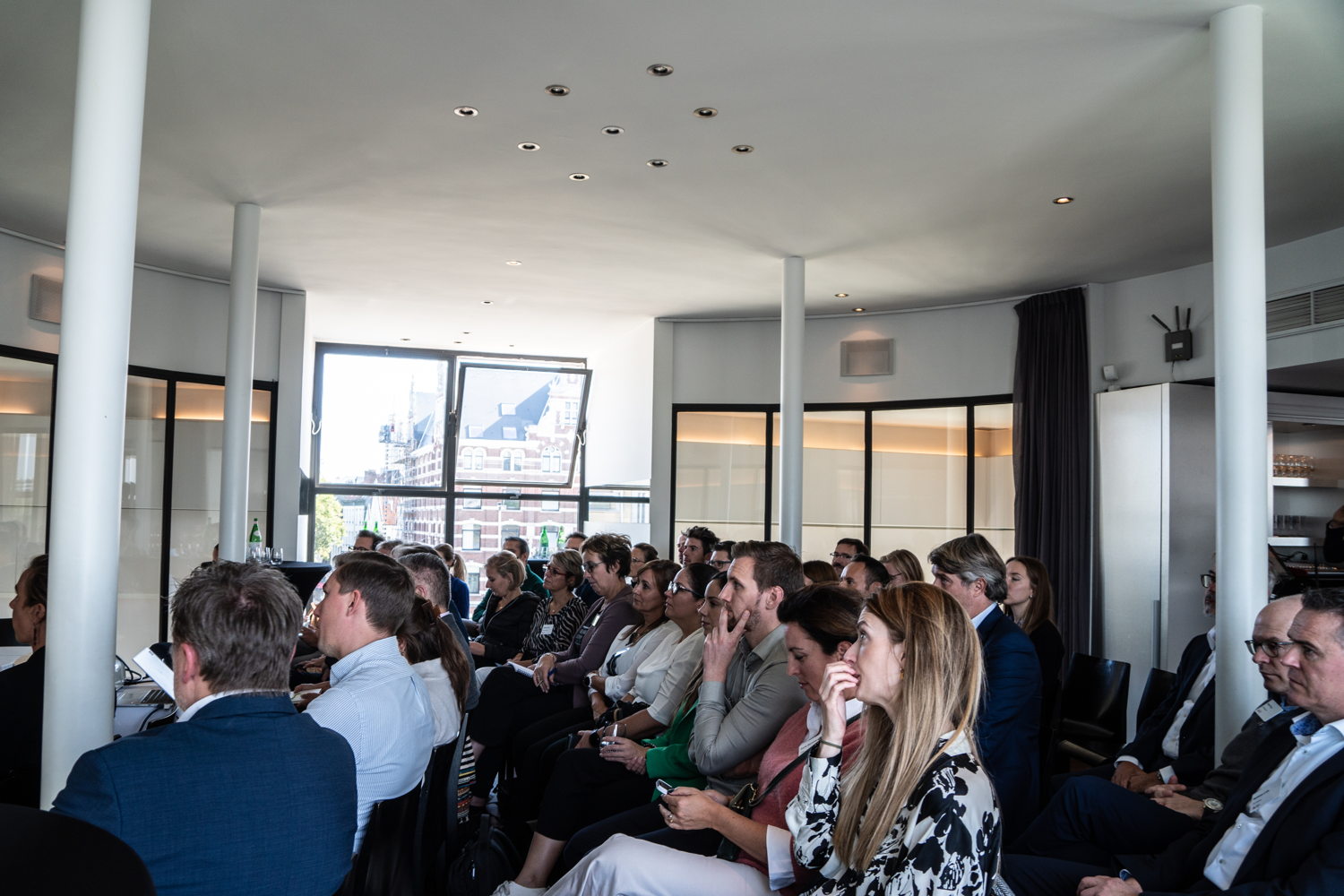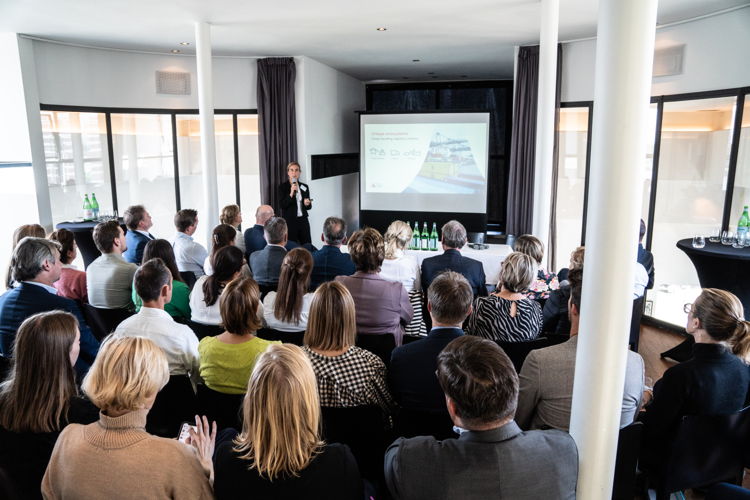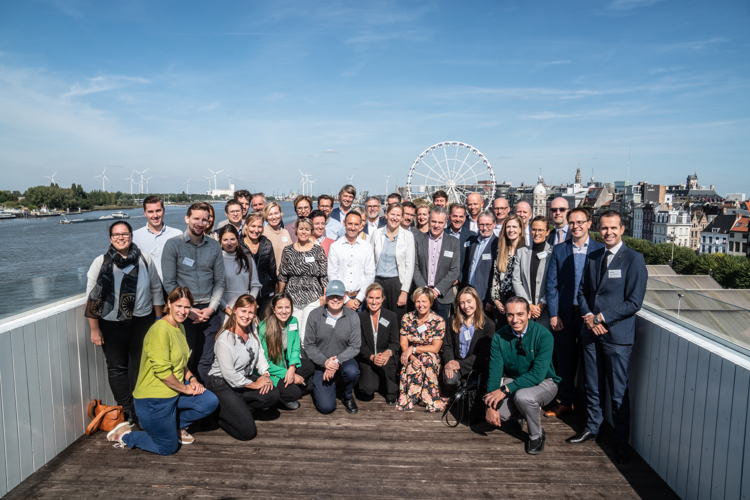Port of Antwerp-Bruges first port to introduce GDP certificate for distribution of pharmaceuticals
The distribution of pharmaceutical products requires specific handling. This method is defined in the GDP (Good Distribution Practice) guidelines. Port of Antwerp-Bruges was the first seaport in the world to translate these rules into the maritime sphere in order to operate in accordance with these European GDP rules throughout the logistics chain. The guidelines have also now been officially recorded in a certificate issued by SGS, which was presented to pharmaceutical industry professionals during a tour of the port yesterday.
GDP guidelines now enshrined in certificate
Domestic and foreign stakeholders from the Life Sciences & Healthcare sector gathered in Antwerp yesterday for a behind-the-scenes look at the distribution process for pharmaceutical products at the port. During a tour of the individual steps of operations, from the security checks to the loading process, they saw how Port of Antwerp-Bruges had become the world's first maritime GDP port. This means that all links of the logistics chain, including the container terminals, can operate according to the standard for European Good Distribution Practices (GDP) rules. GDP is a quality assurance system. This is how the quality of products such as medicines, blood plasma, vaccines and medical equipment passing through the port is maintained during the distribution process. Moreover, the visit from the pharmaceutical professionals was the perfect opportunity to announce that these GDP rules are now also enshrined in an official certificate.
Maritime translation
The basis of the certificate is the guidelines previously issued by Port of Antwerp-Bruges for deep-sea cargo and port logistics of temperature-sensitive pharmaceutical products. These are based on global WHO standards, with a specific focus on Europe and a translation to the maritime sector. The certificate is issued by SGS, an internationally renowned certification organisation for the pharmaceutical sector. Operational companies such as terminal operators and shipping companies can apply for the certification, demonstrating that they value quality in every aspect of their service provision.
Rising demand for shipping by reefer container
Belgium is a major hub for the Life Sciences & Healthcare sector, and many multinationals have their offices here. 1 in 6 medicines exported from Europe set off from Belgium, and half of these medicines are produced here. Owing to cost and sustainability, there is increasing demand for shipping by reefer instead of air freight. With 63,000m² of GDP-compliant warehouses and 9500 plugs for reefers, the port platforms in Antwerp and Zeebrugge can play an important role here.
Jacques Vandermeiren, CEO Port of Antwerp-Bruges: "That the logistical chain for pharmaceutical products poses challenges became more evident than ever during the COVID-19 virus outbreak. As a port, we have demonstrated the essential role that we play in this. After the GDP guideline, as the first seaport worldwide, we are showing the pharmaceutical sector that we take their specific needs very seriously with this certificate."
Vice-Mayor of the City of Antwerp and President of the board of directors of Port of Antwerp-Bruges, Annick De Ridder: "Our strategic location, the over 1,200 fixed connections, our reefer capacity and in particular our know-how make our port an ideal gateway for high-quality medical cargo. We were the first seaport in the world to translate the European Good Distribution Practices rules into the maritime sphere. Thanks to this certificate, transporting pharmaceutical products by reefer is a full-fledged alternative to air freight and we are showing ourselves to be pioneers.”
Eddy Weygaerts, LDO Vaccine Lead for EMEA: "Much of our production takes place in Belgium. For us as shippers, maintaining product safety and quality in the logistical chain is critical. This certificate that specifically addresses the needs during deep-sea transport and handling at the port is therefore very good news for us and a confirmation of the opportunities from transport by sea."




